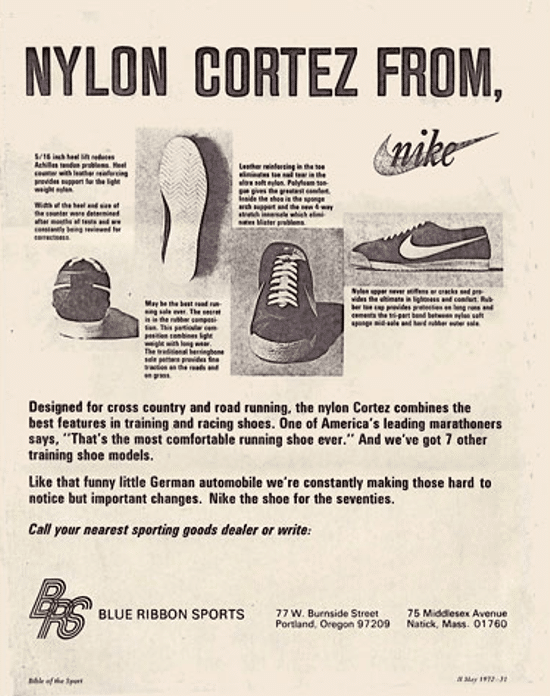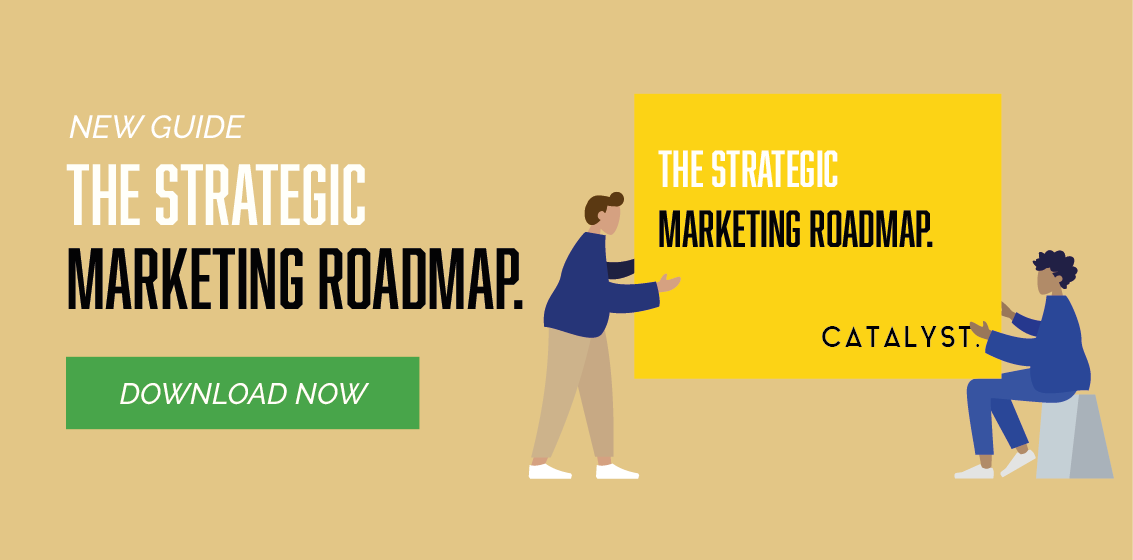Speak to almost any salesperson or marketer and they will tell you that the secret to sales and marketing success is benefits.
“Sell them on the benefits right and they’ll be sure to buy” they’ll tell you overzealously, as if it were as easy as that.
But this widely-held belief is flawed in exactly the same way that Economics is broken.
As a field of study, Economics assumes that people will make logical decisions, estimating how behaviour and spending patterns will change in society as a result.
But for many reasons, people don’t always make the choice that’s best for them; there’s something greater than just a simple, Neanderthalic “Good yes, bad no” decision making compass which directs us.
Behavioural Economics is the answer to Economics’ flaws, studying instead how people actually act, why they act that way and how we can influence them to change.
On that note, 99% of the time, successful marketing and sales doesn’t work on benefits.
If it did, anyone would be able to sell a product or service and the job of doing so wouldn’t be anywhere near as stressful or rewarding as it is.
But there’s a good reason why people think that benefit selling is the key to success.
There’s a question that explains all of this nicely, which is used time and time again in one of the most popular TV series of recent years: Game of Thrones.

The Tyrion Lannister School of Sales and Marketing
If you’ve ever watched Game of Thrones, you’ll be very aware of a character called Tyrion Lannister.
Tyrion is a master of getting himself out of sticky situations and has avoided death on countless occasions throughout the show where more powerful, stronger and braver characters would’ve met far uglier fates.
I watched a great breakdown of his character on YouTube a while ago which I’d highly recommend to any fan of the show.
In the breakdown, the narrator makes a very important point about Tyrion which I hadn’t noticed before and which taught me a lot about sales and marketing.
Throughout the show, Tyrion consistently uses one magic question which most Game of Thrones fans won’t have even noticed:
“What do you want?”
By finding out what people really want in life, Tyrion can promise it to them in exchange for whatever he needs (usually, the saving of his life), reversing the power game and putting him in charge.
The narrator goes on to point out that, strangely, in real life, most people do the exact opposite; we tend to tell people why they should do what we want them to, hoping that they’ll do so out of the kindness of their hearts, rather than giving them a personal, selfish reason to act.
This question taught me a lot about sales and marketing because it made me realise the same is true of most businesses regarding benefits selling.
Too many marketers and salespeople talk about themselves over and over again in their communications – “we’re a leader of this, we’re amazing at that, we solve XYZ, we’ve worked with blah, blah, blah” – forgetting about the buyer altogether and failing to answer the question “What’s in it for me?”.
But if you can work out what your buyers want, just as Tyrion does, you can sell exactly what your prospects are buying.
So, why isn’t it about benefits?
Sadly, you can’t always just tell someone what’s in it for them.
With many brands, it’s not the offer or product or even the price that wins people over: it’s the perceived added value.
That value that doesn’t really exist at all. It can’t be measured or counted, there are no metrics on it.
It only exists in people’s minds.
Nike are the perfect example of exploiting this fact.
They didn’t get anywhere when they were just talking about benefits.
“Our clothes are lighter than Adidas’.”
“Our shoes are better than Pumas.”
Then Nike had an epiphany: they needed to create something in the minds of people that they would literally feel when they even looked at a tick.
Rather than talking about benefits, they started telling stories.
The stories of Michael Jordan.
The stories of Tiger Woods.
Of Federer, Sharapova, Armstrong, Ronaldo and so on.
As soon as Nike started to tell the stories of people who had certain values – drive, commitment, determination, passion, a winning mentality – we immediately started to associate those same values with the brand.
This advert is a great example of Nike’s value-rich marketing strategy.
Wearing Nike products shouldn’t actually make you more driven, more determined, more passionate – they’re just clothes, after all.
But they do.
We feel something when we interact with certain things in the world. The brands and products we use do make us feel and act differently than we otherwise would.
Enjoying this piece? Subscribe to our mailing list below to get more great content, straight to your inbox:

The Wine Experiment
I watched a great TedTalk a while ago called The Price of Happiness in which the speaker, Benjamin Wallace, was fortunate enough to be backed by a magazine he writes for to go out and test some of the world’s most expensive goods as an experiment to find out if they were actually worth the price.
He ate Kobe beef, drank rare wines, tasted expensive Olive Oils, saw* a $30,000 per night hotel suite (*the magazine wouldn’t back him on that one, sadly).
But he describes throughout the presentation how he was immensely disappointed by pretty much all of the things he experienced.
Then, right at the end of the talk, he mentions a very interesting study in which subjects were given two wines to drink. They were exactly the same, but both had different price tags.
“A lot of people said that they liked the more expensive wine more – it was the same wine, but they thought it was a different one that was more expensive.
But what was unexpected was that these researchers did MRI brain imaging while the people were drinking the wine, and not only did they say they enjoyed the more expensively labeled wine more, their brain actually registered as experiencing more pleasure from the same wine when it was labeled with a higher price tag.”
How crazy is that?
Just because the brain deems something to be more valuable – even though it absolutely isn’t – our brains actually trigger a different feeling and experience in us.
Effective marketing and sales therefore isn’t about making people realise that your product is great and will enhance their lives through its benefits, but is actually about making people feel as though their lives are better because they associate with your brand.
Better doesn’t always have to mean more profitable, faster, less stressful.
Better – to our inherently selfish brains – means sexier, higher status, more powerful and, even, more expensive.

So, is business, sales and marketing only about values? Is that all that matters?
I’ll leave you with a brilliant story my philosophy teacher taught me at school:
There’s a huge queue of people waiting to get into the coolest nightclub in the world.
The bouncers are letting people in slowly when all of a sudden, they stop one guy.
He’s wearing tatty, torn, old robes with a dodgy pair of sandals.
His facial hair is all over the place, he’s pretty dirty and smells a bit, too.
“Sorry mate, no chance tonight.”
Then, a guy strolls right up to the front of the queue.
He’s wearing a very well-fitted, grey Hugo Boss suit which has clearly been tailored.
His black boots are so shiny, the bouncers can see their ugly bald heads in the reflection.
His facial hair is perfectly groomed, he’s clean as a whistle and smells like the most expensive aftershave money can buy.
“Evening sir, go straight through, have a good night.”
Fair enough, isn’t it?
The first guy clearly has poor values. He doesn’t look after himself, he smells, who wants him in their club?
And the second person must be alright. He’s wearing expensive clothes, he’s well groomed, he must have good values.
Well what about if I told you that the first person was Jesus.
And the second was Hitler.
That’s why I titled this piece everything you know about sales and marketing is wrong.
At first, it’s not about the benefits of your product or how good you are at what you do. It’s all about how well perceived you are and the values you appear to have.
As Tony Robbins rightly says, “Style beats substance, initially.”
Long-term, to have a successful business, you have to have substance in the form of a substantial, quality service, too.
I can assure you that as soon as Hitler went up to the bar in that club, started chatting up a girl and she realised he was a racist, sexist, nutcase weirdo, he would’ve been dragged by the moustache and kicked to the curb.
But it was the marketing that got him through the door in the first place.
Already got a great product or service that you can’t get past the bouncer? Download our Strategic Marketing Roadmap.

